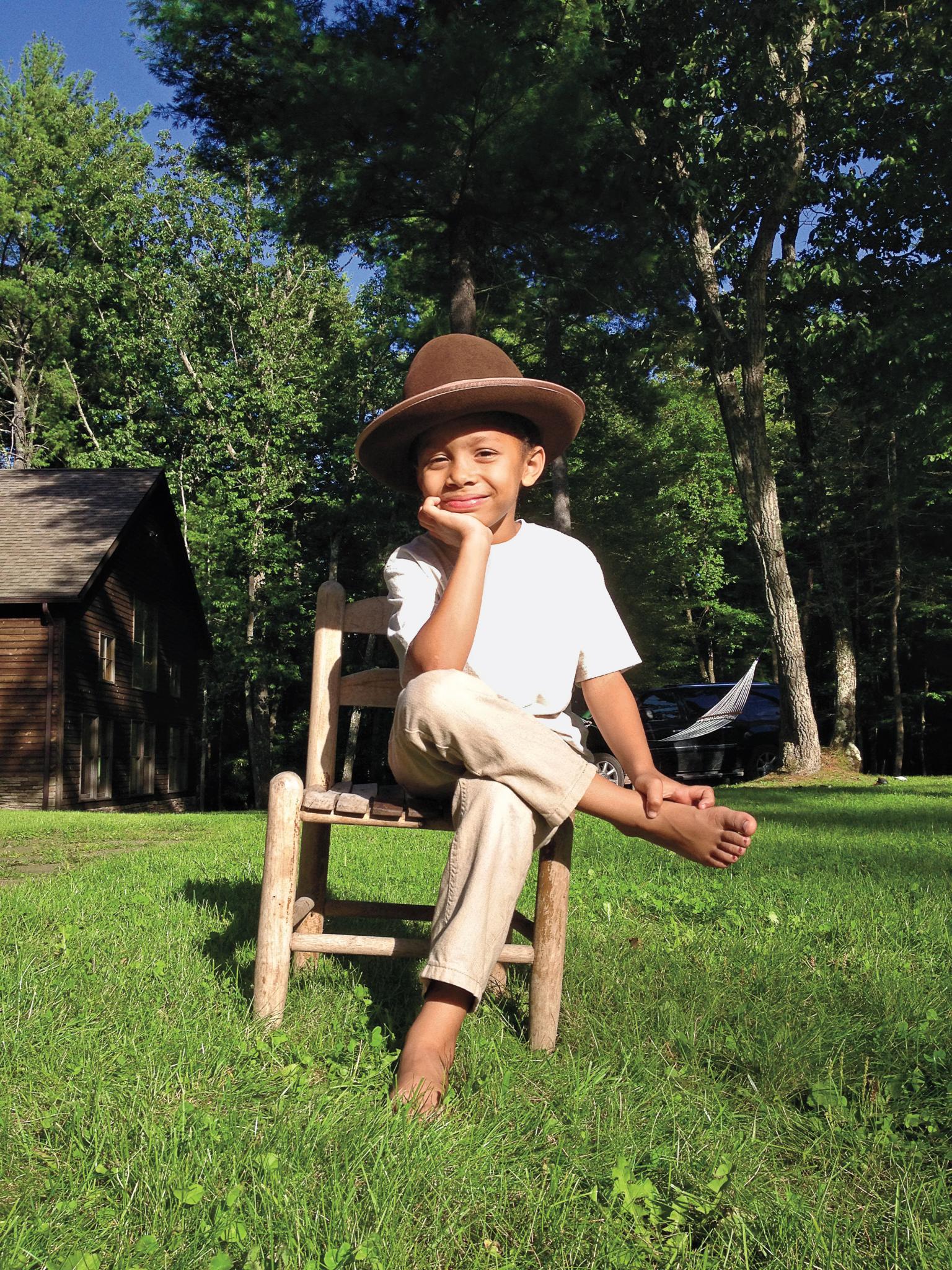
Penel was born Penelope Adjua Ghartey, named after my mother-in-law and the Ghanaian day of the week on which I went into labor. We were all so happy to welcome a second baby girl into our lives. I thought, Piece of cake. I know girls like the back of my hand. I had no idea how complicated our lives were about to become. As Penelope grew, a very unsettled child emerged. Penelope displayed signs of anger, anxiety, fear and disruption. By age 2, Penelope had turned into a bully—shoving siblings and throwing toys at friends.
One day I asked Penelope, “What’s the matter, love? Why are you so angry all the time?” Penelope responded with a flood of tears, “Because everyone thinks I’m a girl, and I’m not.” I knew at that moment it was important to say something that would convey my unconditional love and support. “Oh, baby, you’re free to be whoever you feel you are. What’s inside is what counts.” Penelope spoke up more clearly than ever before and looked directly into my eyes. “Mama, I don’t feel like a boy. I am a boy.” Those words shook me to my core. I listened to Penelope tell me how he hated his body and wanted a doctor to make him a “peanut.” How tomorrow would be worse than today because “soon my body will look like yours, Mama.” He didn’t want tomorrow to ever come. What Penelope was talking about was deeper than what I knew. I was talking about self-expression. Penelope was conveying knowledge of self.
Today, I understand a very important truth: We are who we are, and there’s very little we can do to change our core. If we’re asked to change, there will be a chasm so deep inside of us that it will threaten our very life. And, subsequently, asking another human to change his core is inviting death upon that person. It is my duty to keep Penelope alive.
Penel (which he likes to be called for convenience) is a boy, regardless of physical attributes. From the time he could speak, he’s consistently proclaimed “boy” to the world. In his drawings and writings, creative moments when he’s not thinking of how the world views him, Penel sees himself as a boy. When he projects into the future, he imagines himself as a dad and a husband—never the opposite. Over the years, he’s never once swayed.
I’ve led our family on a quest to understand what being transgender feels like through research, conversation and observation. We’ve snuggled together and watched age-appropriate videos of other transfamilies, listening to stories of kids similar to Penel. I make sure we say the word transgender out loud.
It hasn’t been easy. Penel’s dad and I have fought over this. I’m brazen and he’s conservative. I said, “Okay, let’s embrace it! Take it head on.” He said, “Slow down. Let’s not make any hasty assumptions.” Trying to understand Penel’s identity has taken our family on a tempestuous journey, but it has also brought us closer together. By the time Penel was 4, we had fully accepted him as a boy. One of my proudest moments was writing a letter to our friends, family and Penel’s teachers announcing the change and explaining what we were all going through.
We have had awkward situations where people have wanted to “out” Penel in public just to let others know that he “isn’t really a boy.” That hurts—more so to see the devastated look on Penel’s face than the confused look on the adults’ faces. I support Penelope regardless of the comments we hear: “She’s so pretty—just put a dress on her.” “She’s a tomboy and can grow out of it.” But sometimes I cry when I think of the near future. Who will be his first kiss? Who will love my baby? Who will understand Penel’s beautiful complexities as I do?
In those moments, I remember that it’s important to raise Penel with a progressive mind-set. When Penel is on his own and living out in the world, I want him to be free and happy. So I think big. We as parents have God’s work to do.
These days, Penel excels in school and sports. In karate, he’s a shining star with a mean, stiff-torso push-up. One day, a teacher called out, “Little Dude, come to the front and show these weaklings what a real push-up looks like!” Penel is relentless in his pursuits. What he wants, he grabs. What he likes, he makes his own. He defies stereotypes and challenges people he meets to rethink their ideas of gender, ability and, most of all, happiness. Penel is lucky to know so deeply who he is.
This article was originally published in the November issue of ESSENCE magazine, on newsstands now.




